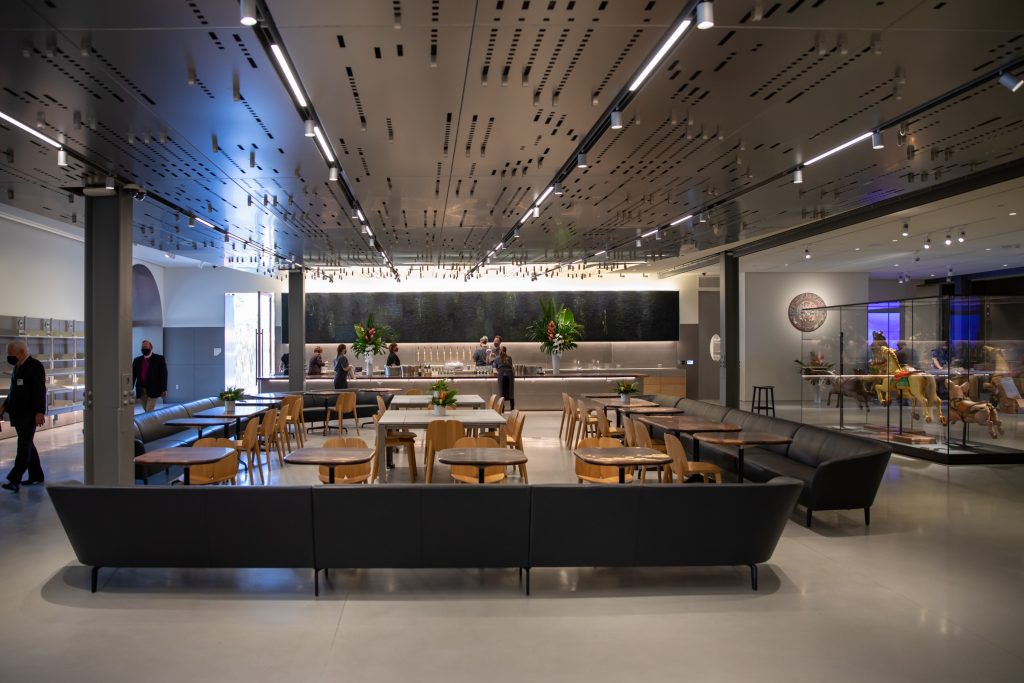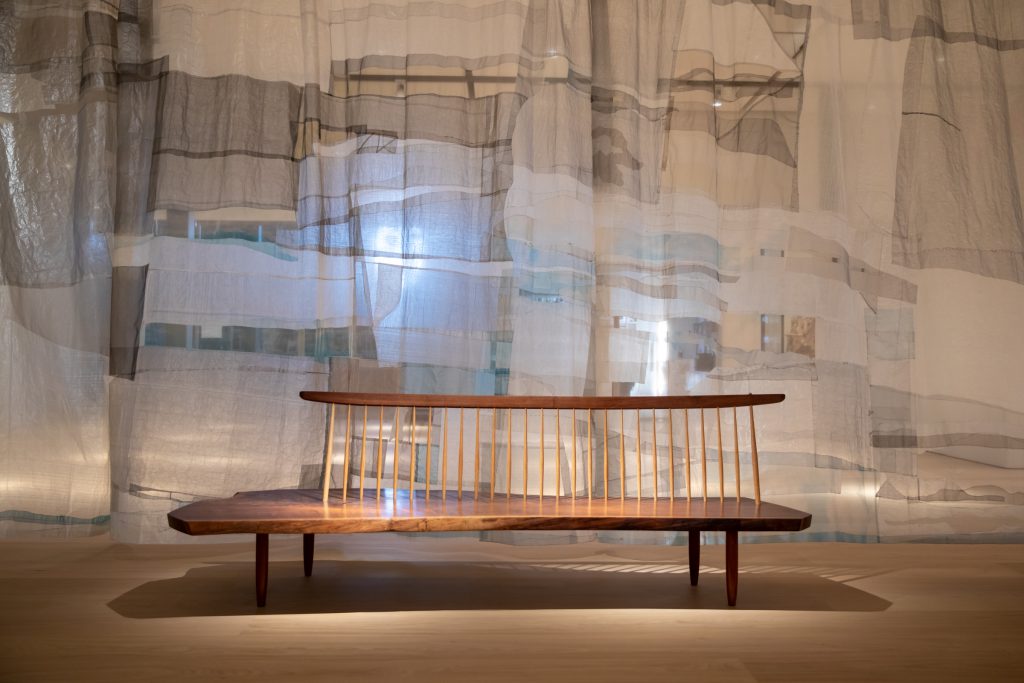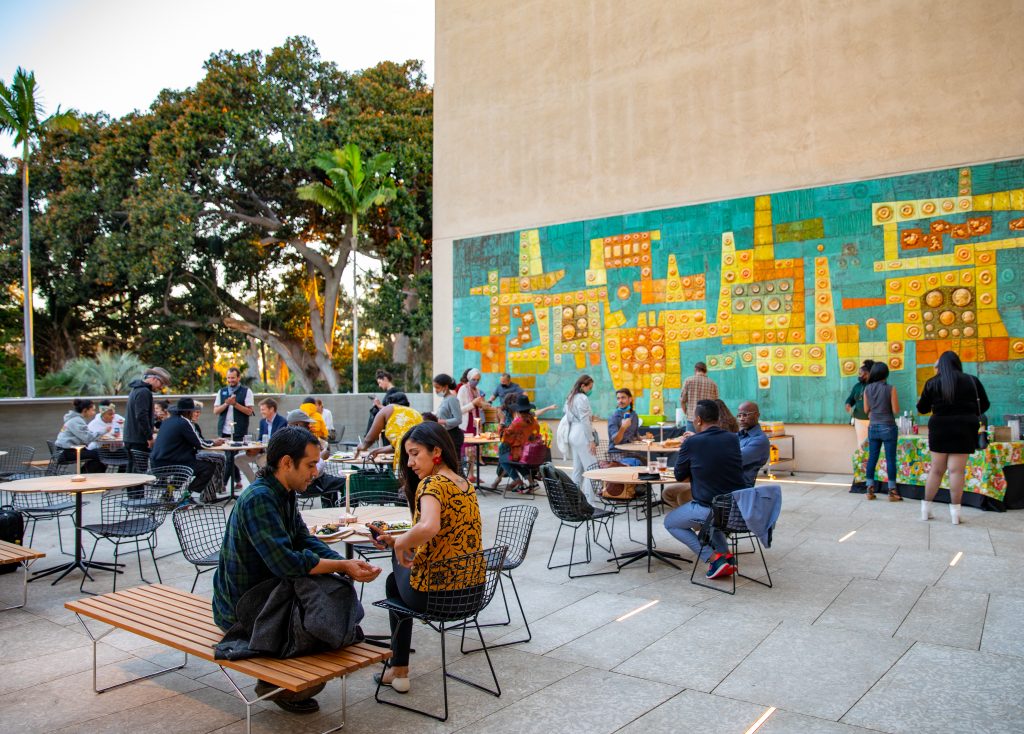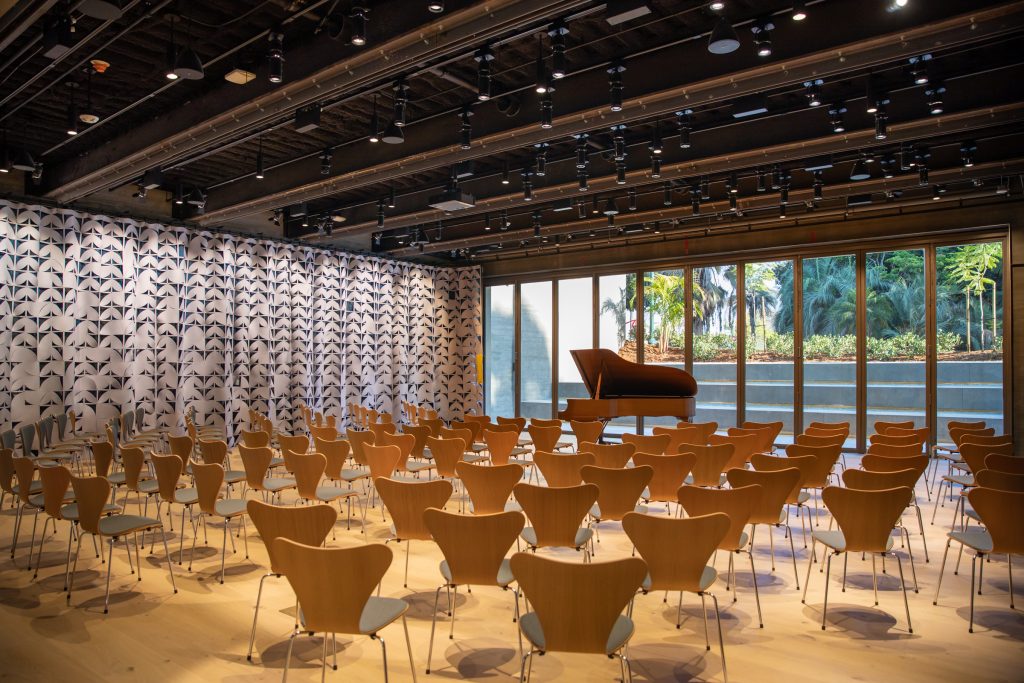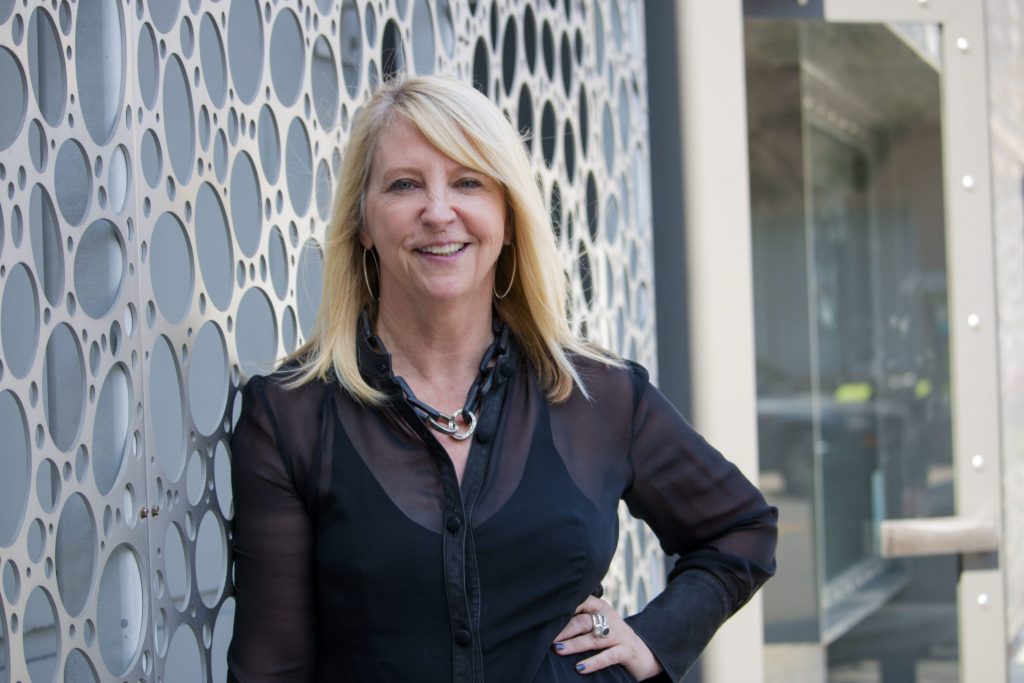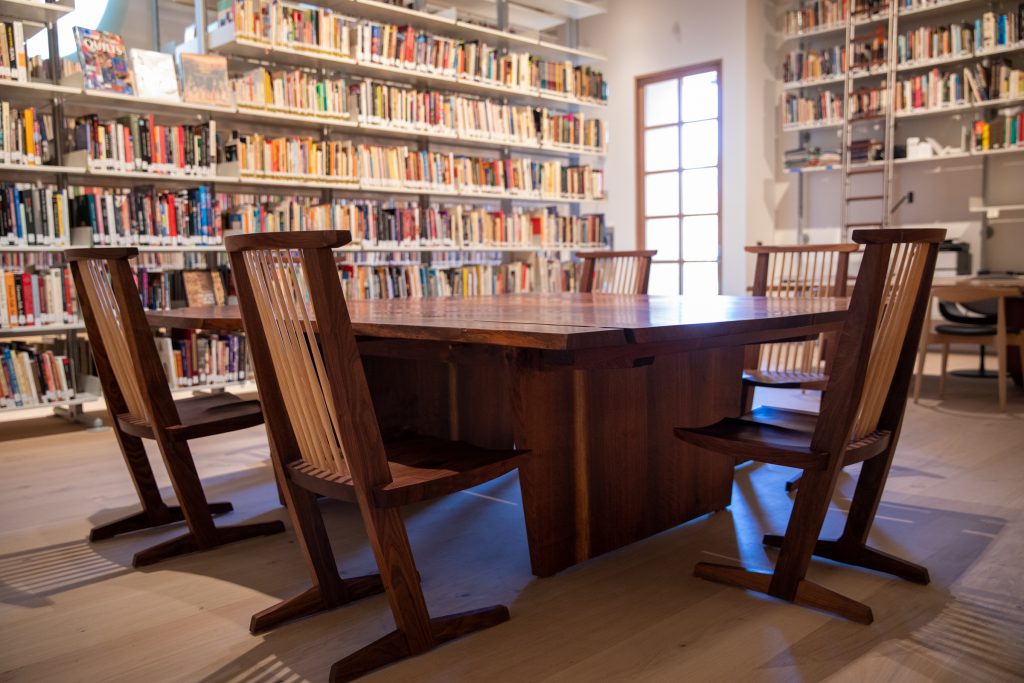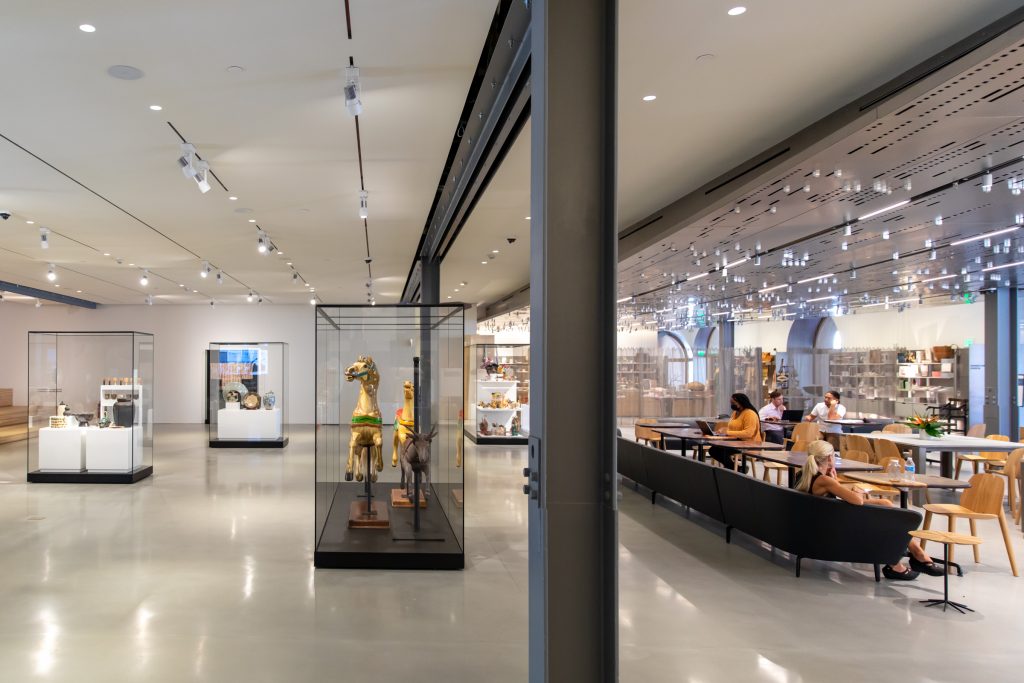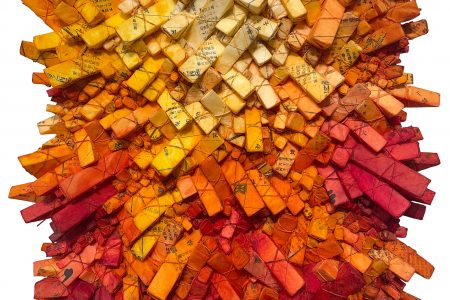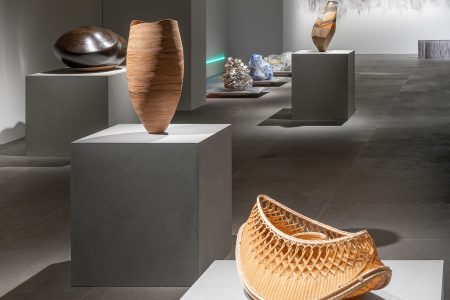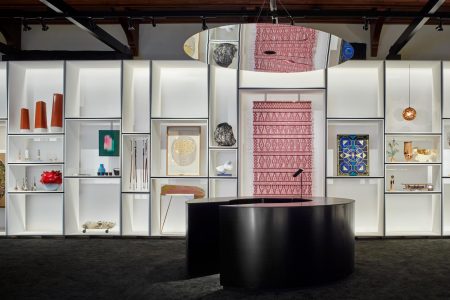The Spirit of Mingei
The Mingei International Museum in San Diego, California, re-opened its doors to the public in September 2021 after an extensive 3-year renovation led by architect Jennifer Luce, principal of Luce et studio. With its dynamic, welcoming space & contemporary vision, the museum shines a light on the beauty of craft and the handmade.
The Mingei International Museum, which is dedicated to collecting and presenting ‘art of the people’ or mingei in Japanese, is housed in the city’s historic Balboa Park, in a landmarked 1915 building (renovated in 1996), but which needed a major update for the 21st century. The vision was to open up the building to the natural California light and create spaces that would welcome the community and better present their extensive collection of handmade objects from all over the world.
The new museum is itself an homage to craft through its choice of materials including wood, textiles, glass, and particularly through metal (steel, brass, aluminium, and bronze), which is used throughout the building in very unexpected ways.
An essential feature of the building is its Commons level, the entryway from the park that visitors, including non-museum goers, can access and enjoy. Here, one is immediately engaged with the spirit of mingei. The large, open-plan space features several large vitrines showing highlights from the collection – for the opening months, this included painted carousel animals and an exquisite selection of ceramic bowls and brushes used in traditional Japanese tea ceremonies. Deputy Director, Jessica York, notes that since re-opening, “Our Commons level has truly become the living room for Balboa Park. People stop in to browse Shop Mingei, meander around the exhibition cases, meet for coffee at CRAFT CAFE and we’ve even had people set up their laptops to do a little work at ARTIFACT’s bar. In just a few short months we’ve been thrilled to see people coming here and enlivening the spaces like it’s their home.” The restaurant’s bar counter is an impressive, 9-metre long piece of reclaimed California walnut wood found and deigned by local craftsmen, Tule Peak Timber. The design and details of the bar are partly inspired by George Nakashima, whose work was one of the first to be collected by the museum when it began in the 1970s. Influences from Nakashima are felt in subtle details throughout the building and his iconic furniture is placed in several rooms, including the library and meeting rooms. Other bespoke commissions for the Commons area include a 10-metre long felted wool tapestry, titled Truth & Beauty in Black, by Dutch artist and activist, Claudy Jongstra, installed along the wall above the bar, and Suspended Refrain, a 9-metre long perforated metal ceiling above the restaurant’s main seating area, which mimics the scroll of a player piano roll of an actual song. This piece was designed by Luce and made by architectural metalwork company, A. Zahner, who also collaborated with Luce on a series of 64 twisted brass pickets for a fence in the courtyard.
Luce and her team worked very closely with the museum’s staff and this connection is felt across the renewed museum in its thoughtfulness, functionality and in the details. After researching the history of the building, the team uncovered photographs that showed a terrace that was currently non-existent. In one of the more challenging parts of the renovation, they were able to bring the terrace back, adding in an outdoor space that offers views over the park. In the expanded exhibition spaces, the museum commissioned artist, fashion designer, and founder of dosa studios, Christina Kim, to create a curtain that could divide the exhibition space when needed, yet keep in light and transparency. The hand-stitched curtain, titled “liquid2solid”, was made with cut out pieces of Dyneema, a technical fabric often used for tents. “Perfectly imperfect,” the shimmering and layered patchworked curtains are an example of how her work seeks to “honour the human effort that goes into the making at every stage,” Kim says.
A totally new addition to the museum is the 120-seat theatre, created by converting an unused loading dock. Here, Dutch artist, Petra Blaise, was commissioned to create an acoustic curtain to run the length of the 12-metre long retractable glass door which opens onto an amphitheatre. Titled Sessions, the piece was inspired by the local jacaranda trees that bloom purple flowers in the spring.
“In just a short time the theatre has become an essential part of the Museum,” says York. “It has already been used for film screenings, music and dance performances, lectures and private events. This October, the museum launched a new program, Community Mondays, which provides local, under-resourced arts and culture non-profits the use of our theatre free of charge.”
The Mingei International Museum feels like what a museum should be doing in the 21st century; offering access to the community through inviting spaces and educational programming, and bringing the collection forward in engaging ways while putting into focus the talent of today.
When asked about a place in the museum that has become an unexpectedly gathering place, York notes that, “The Courtyard has been a surprisingly popular destination because of a recently installed mural, Variations on a Gold Theme. It’s an enamel mural made by San Diego artists Ellamarie and Jackson Woolley and it’s quite large, 12’x36′. It was installed at eye level so people can walk up and see the different layers and shapes as well as all the indents, nails and paint. Part of Mingei’s mission is to inspire people when they visit the Museum, and I think placing this stunning, large-scale work of art in a very accessible location really does that.”
mingei.org
@mingeimuseum
lucestudio.com
@luceetstudio
